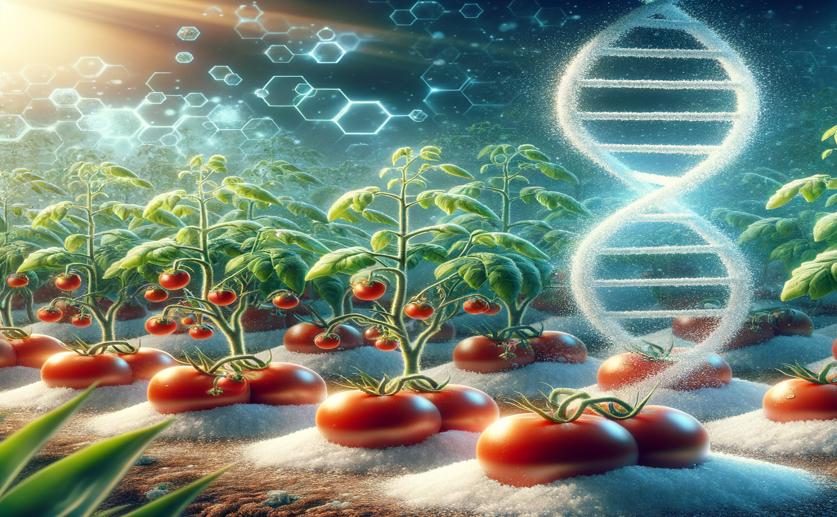
Enhancing Salt Tolerance in Tomatoes Through Genetic Editing and Analysis
Jenn Hoskins
23rd August, 2024

Image Source: Natural Science News, 2024
Key Findings
- Researchers at the Xinjiang Academy of Agricultural Sciences found that the SlRabGAP22 protein helps tomatoes tolerate salt better
- Editing specific mRNA segments called uORFs in SlRabGAP22 reduced their inhibitory effects, enhancing salt tolerance
- Improved salt tolerance in tomatoes was due to better management of reactive oxygen species, reduced sodium toxicity, and less osmotic stress
References
Main Study
1) Editing and genome-wide analysis upstream open reading frames contributes to enhancing salt tolerance in tomato.
Published 20th August, 2024
https://doi.org/10.1111/pbi.14450
Related Studies
2) Constitutive overexpression of a stress-inducible small GTP-binding protein PgRab7 from Pennisetum glaucum enhances abiotic stress tolerance in transgenic tobacco.
Journal: Plant cell reports, Issue: Vol 27, Issue 1, Jan 2008
3) The unconventional P-loop NTPase OsYchF1 and its regulator OsGAP1 play opposite roles in salinity stress tolerance.
4) Translational Landscape of Medicago truncatula Seedlings under Salt Stress.
5) Salt-induced remodeling of spatially restricted clathrin-independent endocytic pathways in Arabidopsis root.



 21st August, 2024 | Jim Crocker
21st August, 2024 | Jim Crocker